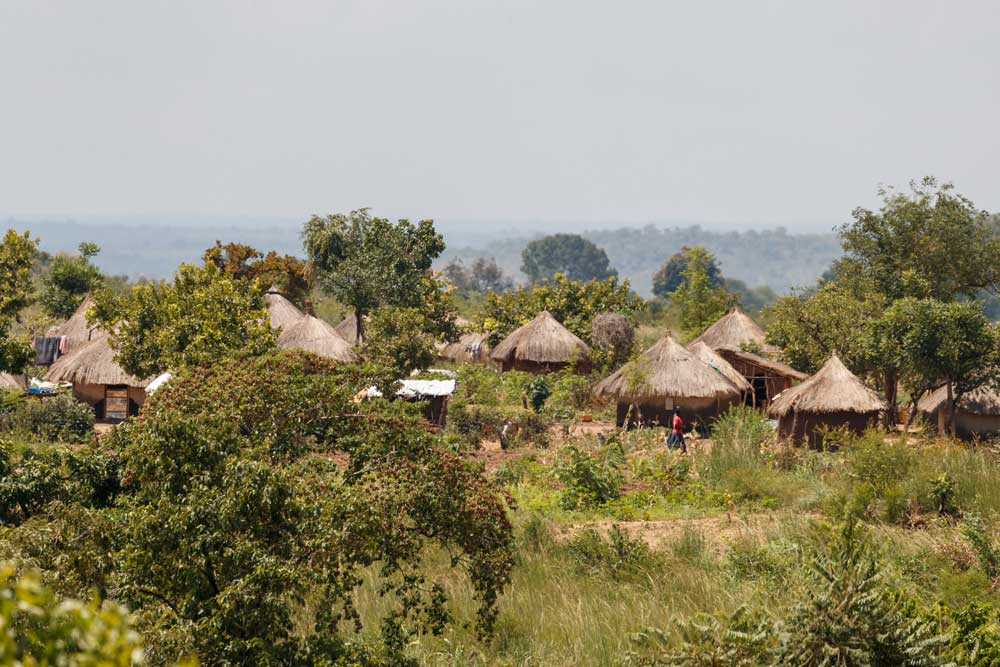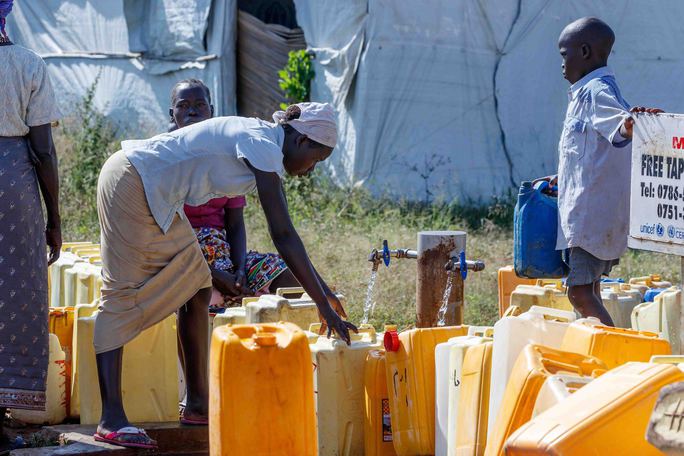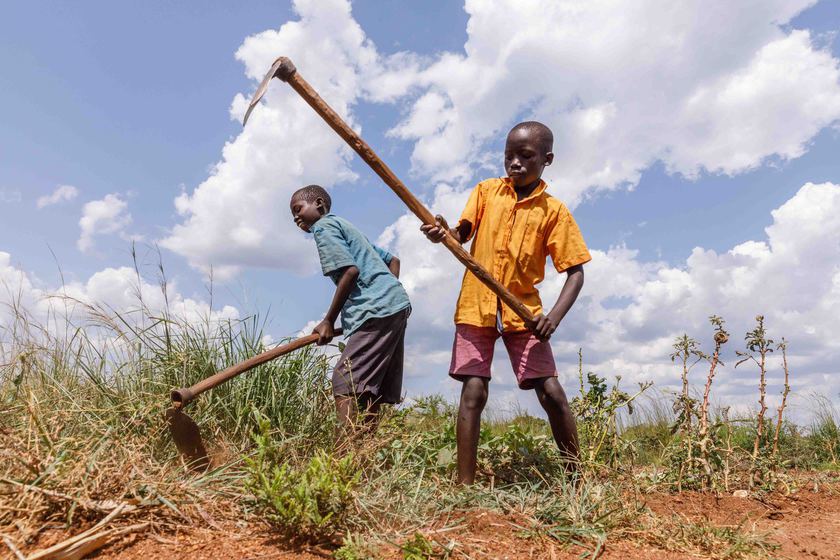The Book of Joy: Joy in Trials and Struggles

Deep in the heart of one of the world’s largest refugee settlements is an unexpected outbreak of joy.
If you travel for just over an hour east of Koboko, Uganda on rain-rutted red dirt roads, you’ll find yourself in picturesque countryside. Just off the busy road are shops as well as schools and churches. You’ll soon notice clusters of small, round mud-brick homes covered in thatch dotted across the land.
Arriving at the main gate to the Bidi Bidi settlement you wouldn’t know it spans over 100 square miles and houses over 220,000* of the almost 800,000 displaced South Sudanese in Uganda. This covers three districts of Uganda (Moyo, Yumbe and Arua). The bulk of the Keliko people are found in Bidi Bidi but they’re also scattered to Imvepi, Rhino, Morobi and other settlements.
There are no boundary fences, so at first glance the settlement looks much like surrounding villages with similar dwellings grouped together through the gently rolling hills. But that’s where the similarity ends.
The people in the countryside are Ugandans, going about their daily lives of school, work and social gatherings. Wave as you’re going by and you’ll get a happy wave back.
But driving through the settlements, most people are far from joyful. You might get a few customary waves in return, but for the most part faces reflect the heartbreaking reality of loss and limited resources. There’s not a lot to be happy about.
The greetings are heartfelt and sincere — smiling, singing, dancing, laughing. Even better, you’re invited to join in as they say, “You’re welcome! You’re welcome!”
How is this possible?
The Keliko’s living situation is exactly the same as their refugee neighbors. They eat the same rationed beans and maize, wait hours for water and scavenge daily for firewood. Their kids sit in the same overcrowded classrooms (if they can afford the uniforms). They too get sick and endure many hardships.


Keliko believers credit the hope that sustains them to one thing: God’s Word in their language. And from that hope comes joy — rich, real and inextinguishable.
“We know that the Israelites went to stay in Egypt in exile and that they really suffered. And God cared for them and brought them back to their land,” said translator and pastor Ezekiah Dada. “So also we South Sudanese know … that God is there to take care of us, and God is there to bring us back to our land.”
The gospel came to the Keliko over a hundred years ago and Christianity became the majority religion of the area. But without a Bible in their language — one that speaks clearly to their hearts — preaching was a challenge for church leaders and many people were unable to engage personally.
Church leaders and translation team members have seen so much transformation in the lives of the Keliko people as they engage with their Scriptures — throughout the translation process and now that they have the New Testament. Many have renewed their faith or found Christ for the first time just by hearing a single passage in Keliko.
Translator Isaac Kenyi sang a song based on Keliko Scriptures at a funeral, and 20 people came to Christ. Bishop Seme Nigo Abiuda preached from a translated passage, and 48 people received Jesus as their Savior. Powerful personal testimonies are rising as sweet incense to the Lord: Grace was freed from alcoholism; Bida seeks the Lord instead of a shaman. The list goes on and on.
Holding the newly printed New Testament in his hands, translator and pastor Enos Dada said, “This is for salvation. … When you read [the words] it will guide you not to fall in sin. It is a safeguard. It is a shelter. Though physically we die, we will be saved through this.”
Even as James 1:2-5 in Keliko is preached in a makeshift church made of plastic tarps and branches, there are nods and assents of agreement from the congregation because they know what it means to count it all — past suffering and current trials — as joy.
The Keliko people are not just enduring but blossoming in the difficult place they’ve been planted because they’re feasting on every word that God is speaking in their language.
*Source: UNHCR February 2019
"How did you learn to pray like this?"
Sign Up for Weekly “God Sightings” Text Messages
Each week, you can receive an update on what God is doing around the world — directly to your phone! Stay informed, inspired and encouraged by the latest news, and join us in praying for God’s name to be made known among the nations through the work of Bible translation.
Text SIGHTINGS to 407-358-0916 to get started.




